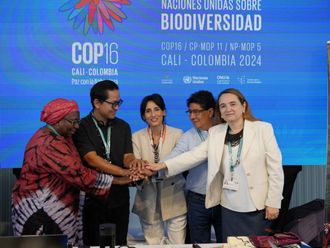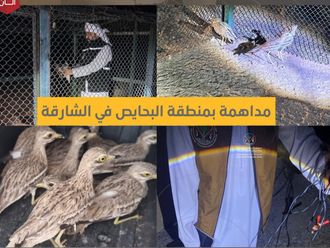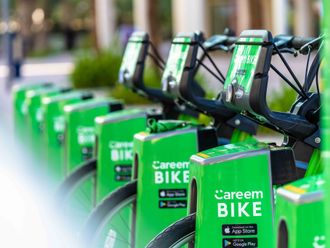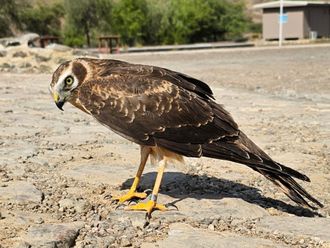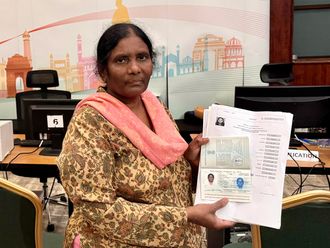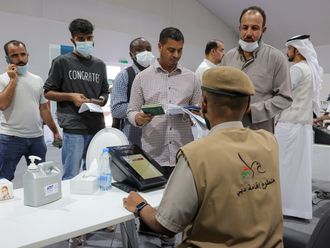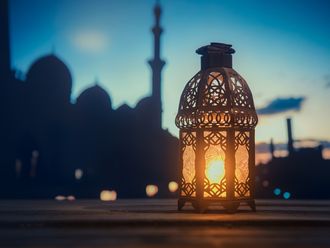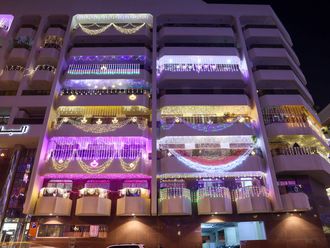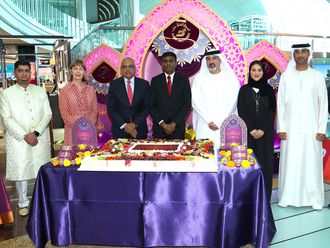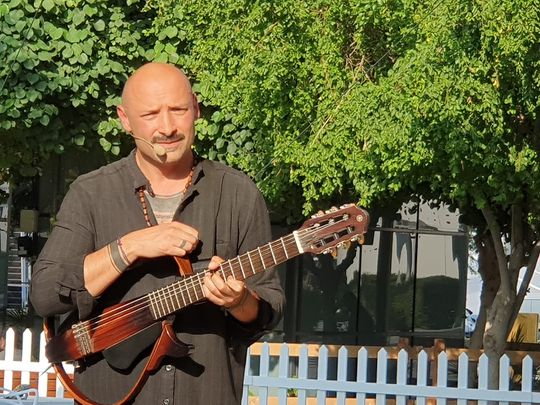
Dubai: Jurgis Didziulis is many things rolled into one – a speaker, activist and performer who uses his learnings from political science and the finer points of his MBA degree to bring communities together.
But it is by the term troubadour that the Lithuanian-Colombian identifies himself – a person who holds musical space.
Didziulis performed at the Extreme Hangout in Al Forsan Park, COP28, on Tuesday.
A professional speaker who did activism, Didziulis studied music and started to mix them.
“I didn’t understand what I did and then someone said, ‘you are a troubadour’. It’s beautiful now that you realise that it’s a dead profession that seems so relevant and so good for times where you need more connection through arts and music.”
Didziulis brings people together through music. “I create exceptional togetherness because at the end of the day what we long for most is to be in a state of community or tribe.
“As human beings we can do things on our own and value liberty and individuality, but completion is only achieved when you feel you are coherent within a bigger group of human beings and hopefully with nature as well, which is the reason why I am at COP28 – with the message that we need to strengthen not only our human relationship but also our relationship with the environment as well.”
Read more
- COP28 in Dubai: Indigenous people now living in ‘survival mode’, warns Maya representative
- Watch: Dubai boy, 16, on tree-saving mission presents app for reusing books at COP28
- COP28 UAE: Final day of the climate conference — in pictures
- What Gulf News editors learnt from COP28 - first person accounts
Didziulis sells this concept to companies who want to work on organisational culture - in the form of public speaking and entertainment. “Usually we take a deep message affecting a group of people and explore it through co-musicality. So rather than talking about things on an intellectual level, you get to experience it.
“What does trust feel like? What does harmony feel like? That is the main job I do?”
His work is not limited to a few people or communities. “I have worked with everyone – bankers to royalty – that’s because music is naturally inclusive.”
So how does music help bring harmony?
Defining harmony as a beautiful relationship, Didziulis says: “It’s about looking into the eyes of the people and seeing what they need or understand and connecting on a human level. Music can explain political systems more than a lot of social theory.”
What motivated him to get into this space?
“It was an accident. What motivated me was opportunity.” Having finished his executive MBA after working as a popular musician for a very long time, he did not like the market, or what he had to do. “But I realised that I could do public speaking through music. And I realised that music is an access way to building community and so I took a deep dive in that.”
On climate and music
Didziulis says humans have a detached relationship with the earth.
“For me the idea is that climate change is like an inflammatory process. It is like a fever. But what are the symptoms – just measuring the problem in carbon isn’t enough. We look at biodiversity. What is important is to change the relationship with nature – then we are on the right track. That begins with kindness, empathy, understanding – which is the same things that we need in organisations.”
In short, bring an emotional aspect to the intellectual and scientific message.
Songs help do this – whether it be with the indigenous people, the military or the scouts. They are a way to create a collected and shared identity to a moment of togetherness, he says.
Didziulis acknowledges that it is good the UAE is hosting COP28. ““The UAE is not only an oil-producing nation, it is a regional beacon of prosperity and stability thanks to oil. That adds a lot of perspective to these difficult conversations on the future of our planet.”
“Real transformation takes place at the community level and this is why I love these activities, to build a tribe.”


